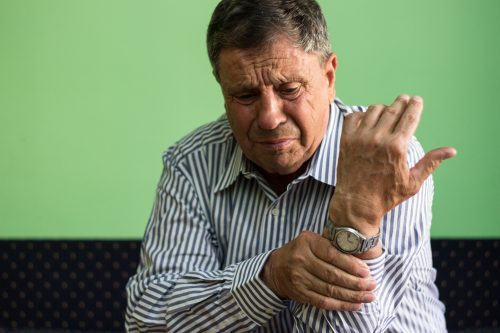
A study published in Arthritis Care & Research analyzed the effects of brief treatment interruptions on rheumatoid arthritis (RA) symptoms among patients taking baricitinib and found that this may result in minor, temporary symptom increases.
“Temporary interruption of rheumatoid arthritis (RA) therapy is common in clinical practice for various reasons including side effects, non-compliance, or necessity for surgery. Short half-life and low immunogenicity may therefore be useful attributes for disease-modifying antirheumatic drugs (DMARDs). Few studies examine what happens when DMARDs are temporarily interrupted and then restarted despite concerns of symptoms worsening or immunogenicity increasing after the stoppage. If disease activity deteriorates, there is also the question of whether it will improve once the drug is started again,” the study authors explained.
To assess the effect of temporary baricitinib cessation, they examined patients with moderate-to-severe RA in four phase 3 studies that compared cessation of baricitinib versus placebo-matched tablets, assessing timing, reason, and duration of investigator-initiated temporary study drug interruptions. Two of the studies required patients to record RA symptoms daily for 12 weeks. Changes in symptom scores during interruptions and resumption of treatment were observed in post hoc analyses. When looking at interruptions, investigators assessed reoccurrence of adverse events and laboratory abnormalities after retreatment.
In the placebo-controlled studies, interruptions took place in greater proportions of patients treated with baricitinib (2 mg, 18%; 4 mg, 18%) compared to placebo (9%) in only one study (bDMARD-inadequate responder patients, RA-BEACON). In the active comparator-controlled studies, in RA-BEGIN, the lowest rates of interruption were observed in the baricitinib monotherapy arm (9%), compared to methotrexate monotherapy or combination therapy, while in RA-BEAM, similar outcomes were observed in patients on baricitinib (10%) and adalimumab (9%). The most commonly cited reason for interruption was adverse events, but reoccurrence was infrequent when the drug was restarted. Interruptions tended to last for two weeks or less. Based on patients’ daily diaries, modest symptom increases were observed during interruption, but upon resumption, symptoms returned to pre-interruption levels or better. Long-term efficacy outcomes were not affected by interruptions.
“Consistent with its pharmacologic properties, temporary interruption of baricitinib during phase 3 studies was not followed by significant reactivation of disease and baricitinib was rarely interrupted again after an initial interruption. The present study should serve to provide useful information for clinicians, as temporary interruption of antirheumatic therapy is common in the care of patients with RA,” summarized the authors.







 © 2025 Mashup Media, LLC, a Formedics Property. All Rights Reserved.
© 2025 Mashup Media, LLC, a Formedics Property. All Rights Reserved.